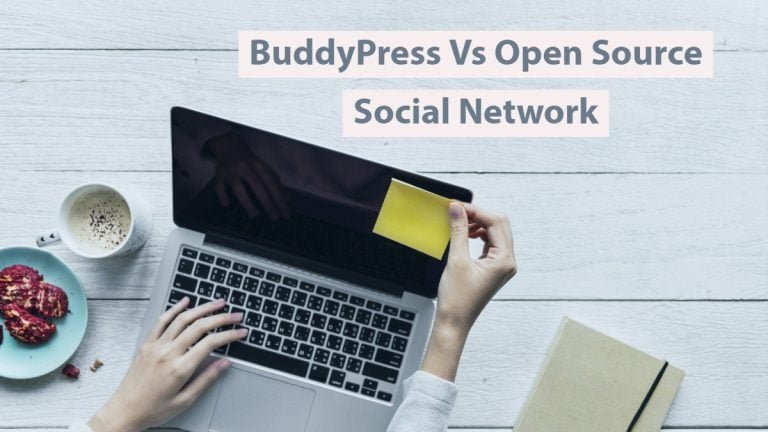In today’s dynamic marketing landscape, Influencer Marketing Platforms play a pivotal role in connecting brands with their target audiences. These platforms serve as hubs where brands collaborate with influencers to create authentic and impactful campaigns. With the rapid growth of social media, influencer marketing has become a cornerstone of modern marketing strategies. This blog aims to delve into the realm of these platforms, offering insights into their definition, highlighting their growing importance, and ultimately guiding readers to explore the top platforms that can elevate their influencer marketing success.
Table of Contents
ToggleTop 10 Influencer Marketing Platforms In 2024
1. Influencity
Influencity is a comprehensive influencer marketing platform that empowers brands to discover, connect, and collaborate with influencers. With a user-friendly interface, it streamlines the influencer marketing process, ensuring efficient campaign execution and measurable results.
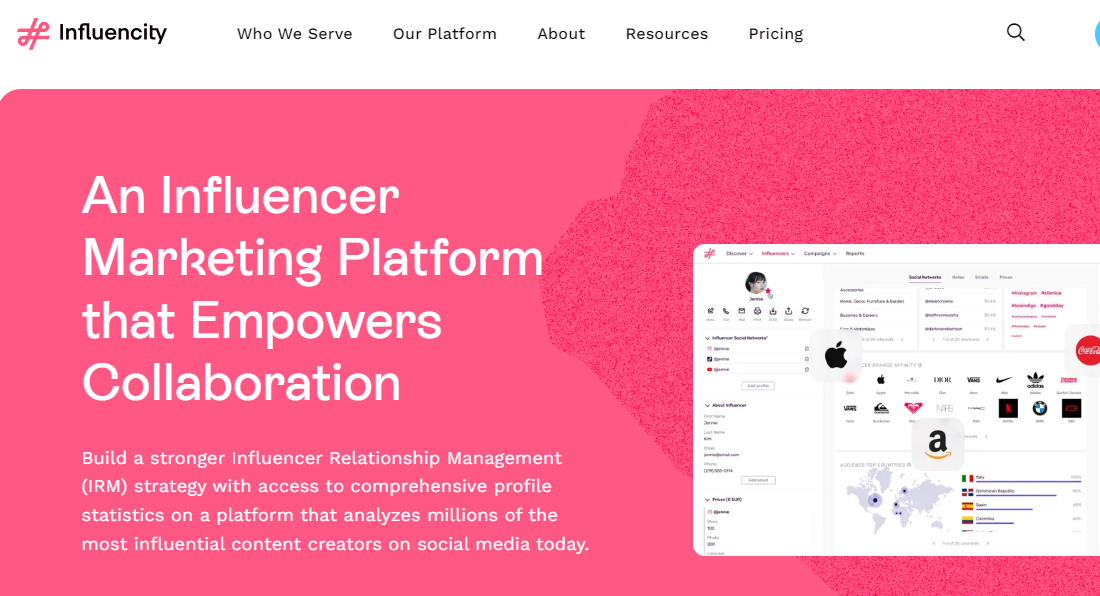
Key Features:
- Advanced Search Filters: Precise influencer discovery through filters like location, interests, and engagement rates.
- Campaign Management: End-to-end campaign tracking and collaboration tools.
- Analytics Dashboard: In-depth insights into campaign performance and influencer ROI.
- Fraud Detection: Robust tools to identify and mitigate fraudulent influencer activities.
- Influencer Relationship Management (IRM): Tools for building and managing relationships with influencers.
2. Grin
Grin is an influencer marketing platform designed to simplify and scale influencer collaborations. It provides a centralized space for brands to discover influencers, manage campaigns, and measure the impact of their influencer marketing efforts.
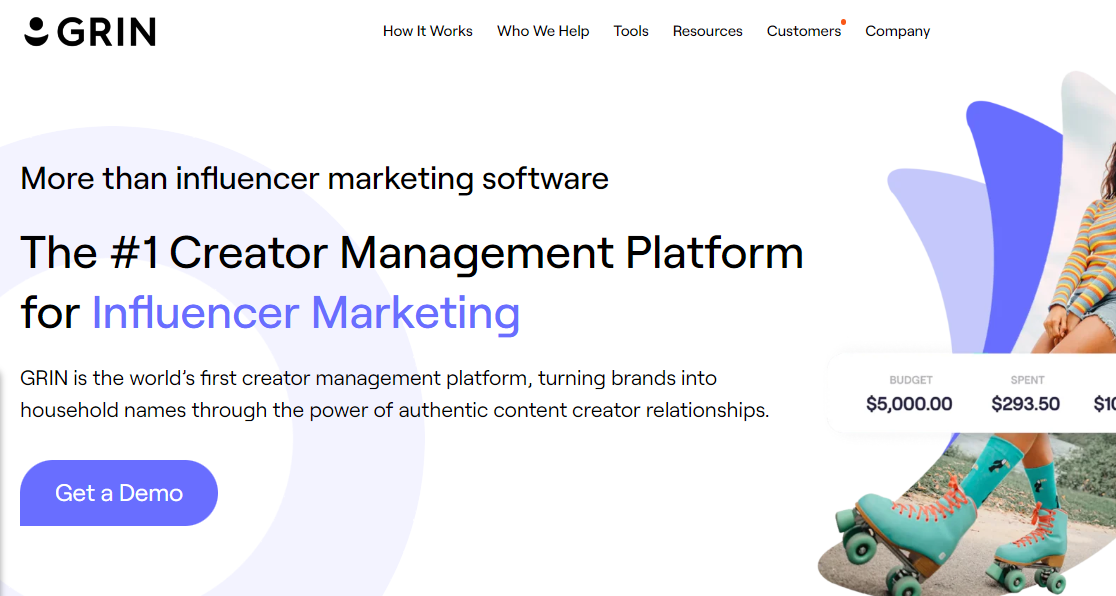
Key Features:
- Influencer Marketplace: Access to a diverse network of influencers suitable for various niches.
- Campaign Automation: Streamlined processes with automated influencer outreach and communication.
- Performance Analytics: Detailed analytics for monitoring and optimizing campaign performance.
- Content Rights Management: Tools to secure permissions for user-generated content.
- ROI Tracking: Comprehensive metrics to assess the return on investment from influencer campaigns.
Also Read: The Ultimate Enterprise WordPress Hosting Solution: Reliable, Secure, and Fully Customizable
3. Upfluence
Upfluence is a robust influencer marketing platform that caters to brands seeking impactful collaborations. Offering a wide influencer database and advanced analytics, Upfluence supports brands in identifying the right influencers and optimizing campaign performance.
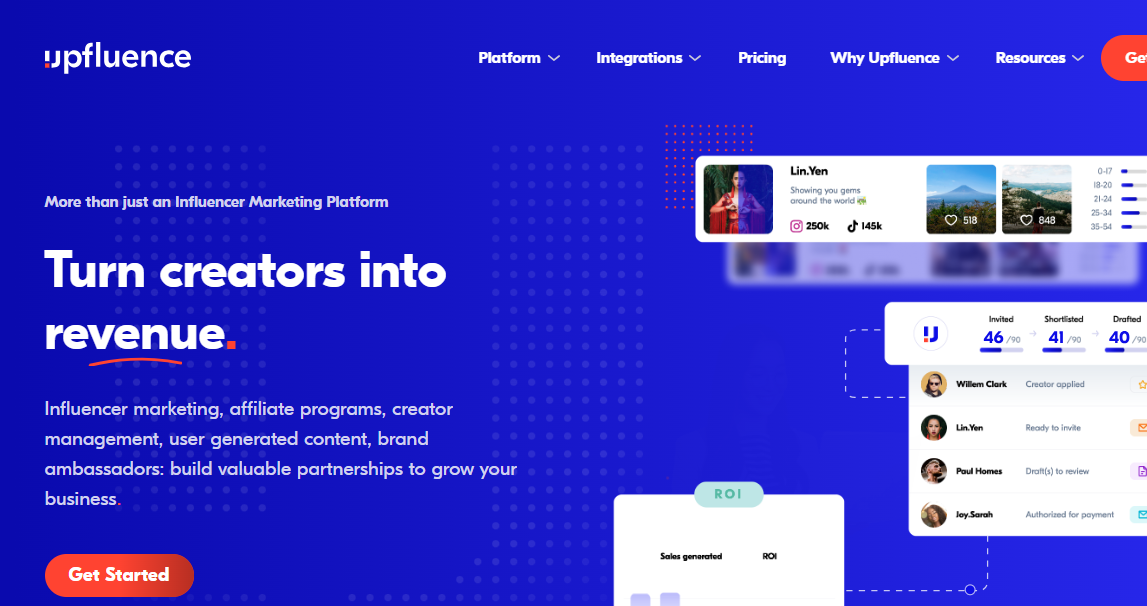
Key Features:
- Global Influencer Database: Access to a vast network of influencers worldwide.
- Predictive Analytics: Data-driven insights for influencer selection and campaign planning.
- Workflow Management: Collaborative tools for seamless communication and project management.
- Influencer CRM: Relationship-building features to nurture connections with influencers.
- Comprehensive Reporting: Detailed reporting tools for analyzing the success of influencer campaigns.
4. Heepsy
Heepsy is an influencer marketing platform focused on data-driven influencer discovery and analysis. It provides brands with the tools to identify influencers based on audience demographics, engagement rates, and authenticity, facilitating effective collaboration.
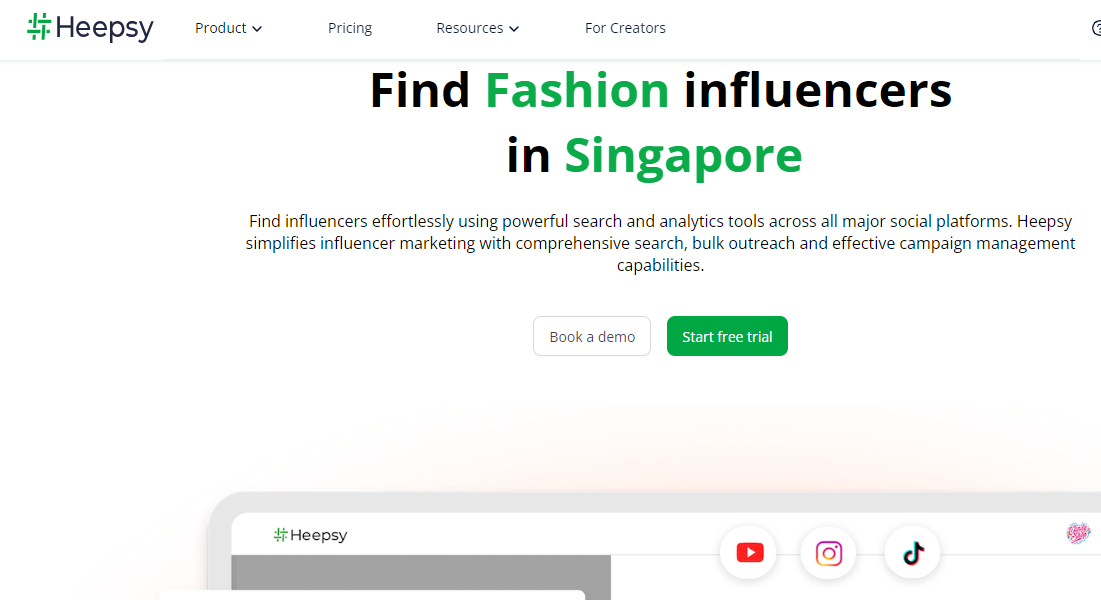
Key Features:
- In-Depth Analytics: Analyze influencer profiles, audience demographics, and engagement metrics.
- Audience Quality Score: Evaluate the authenticity and quality of an influencer’s audience.
- Campaign Tracking: Monitor and measure the success of influencer marketing campaigns.
- Collaboration Tools: Streamlined communication and coordination with influencers.
- Competitor Analysis: Gain insights into competitors’ influencer strategies for benchmarking.
5. Mavrck
Mavrck is a comprehensive influencer marketing platform designed to help brands and businesses connect with authentic influencers across various social media platforms. Its innovative approach combines influencer identification, activation, and measurement to create impactful marketing campaigns.
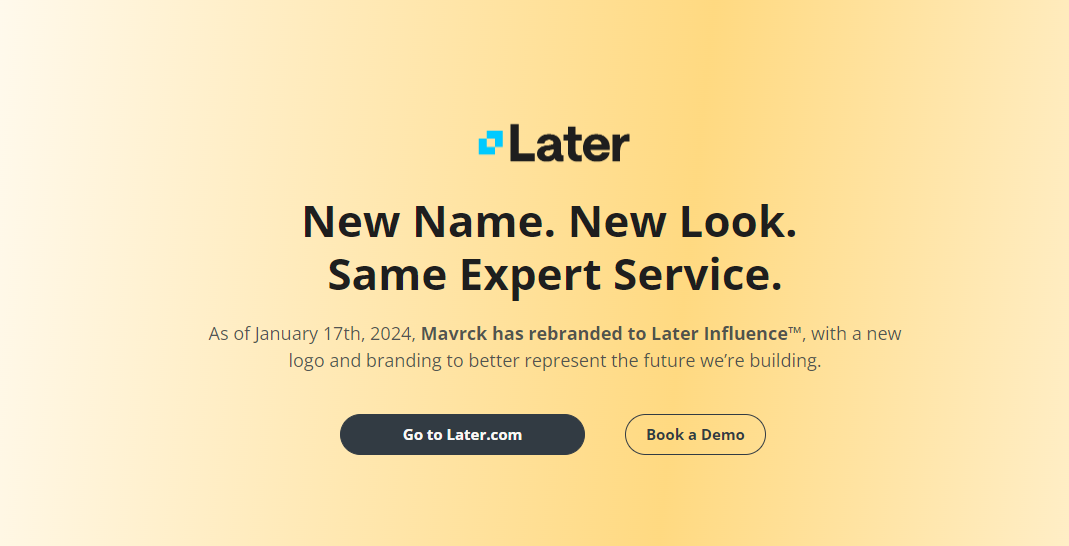
Key Features:
- Influencer Discovery: Mavrck employs advanced algorithms to identify influencers who align with brand goals and target audiences.
- Campaign Management: The platform facilitates end-to-end campaign management, from planning to execution and performance analysis.
- Audience Insights: Gain deep insights into influencer audiences, ensuring campaigns resonate with the right demographic.
- Performance Analytics: Robust analytics tools enable real-time tracking and measurement of campaign performance.
- Influencer Compensation: Mavrck streamlines influencer compensation processes, ensuring fair and transparent collaborations.
Also Read: Best Email Outreach Templates for Every Situation
6. Klear
Klear stands out as an influencer marketing platform that provides brands with tools to discover, analyze, and connect with influencers across various social media channels. Its data-driven approach and expansive database empower brands to make informed decisions.
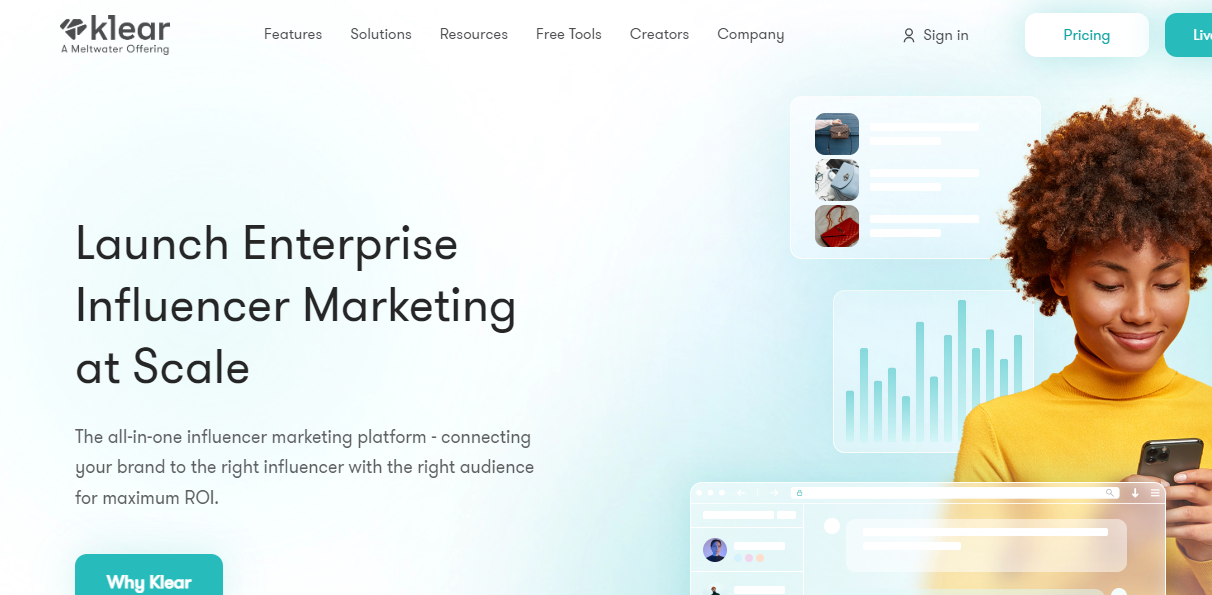
Key Features:
- Influencer Search: Klear offers a vast database for influencer discovery, allowing brands to find influencers based on niche, location, and audience demographics.
- Audience Demographics: Gain in-depth insights into the demographics and interests of an influencer’s audience.
- Performance Metrics: Comprehensive analytics tools provide a detailed view of campaign performance and influencer impact.
- Campaign Collaboration: Klear facilitates seamless communication and collaboration between brands and influencers.
- Content Analysis: Understand the content strategies of influencers to ensure alignment with brand values.
7. Creator.co
Creator.co is a platform dedicated to connecting brands with a diverse range of content creators, influencers, and social media personalities. The platform emphasizes authenticity and fosters meaningful collaborations between brands and influencers.
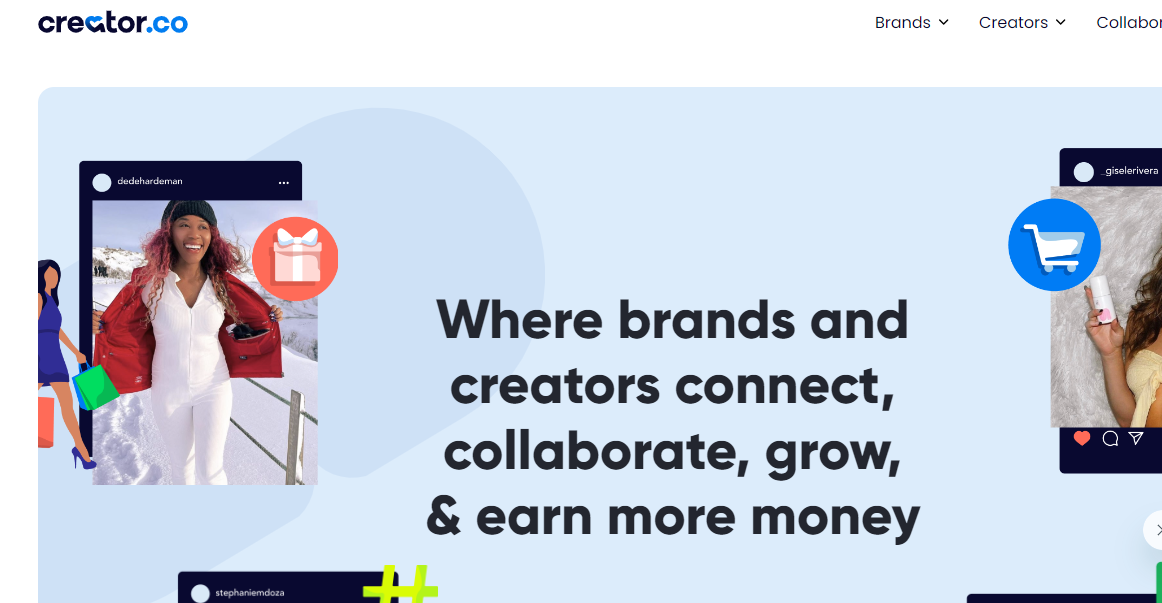
Key Features:
- Creator Network: Access a diverse network of creators spanning various industries and niches.
- Content Collaboration: Facilitate authentic content creation through direct collaboration with influencers.
- Campaign Management: Streamlined tools for planning, executing, and monitoring influencer campaigns.
- Audience Authenticity: Emphasis on influencers with genuine and engaged audiences for impactful brand resonance.
- Data-Driven Insights: Utilize data analytics to measure the success and ROI of influencer marketing efforts.
Also Read: 10 Managed WordPress Hosting Options
8. Webfluential
Webfluential is an influencer marketing platform that connects brands with influencers, enabling them to amplify their message through authentic and influential voices. The platform facilitates collaboration, content creation, and campaign optimization.
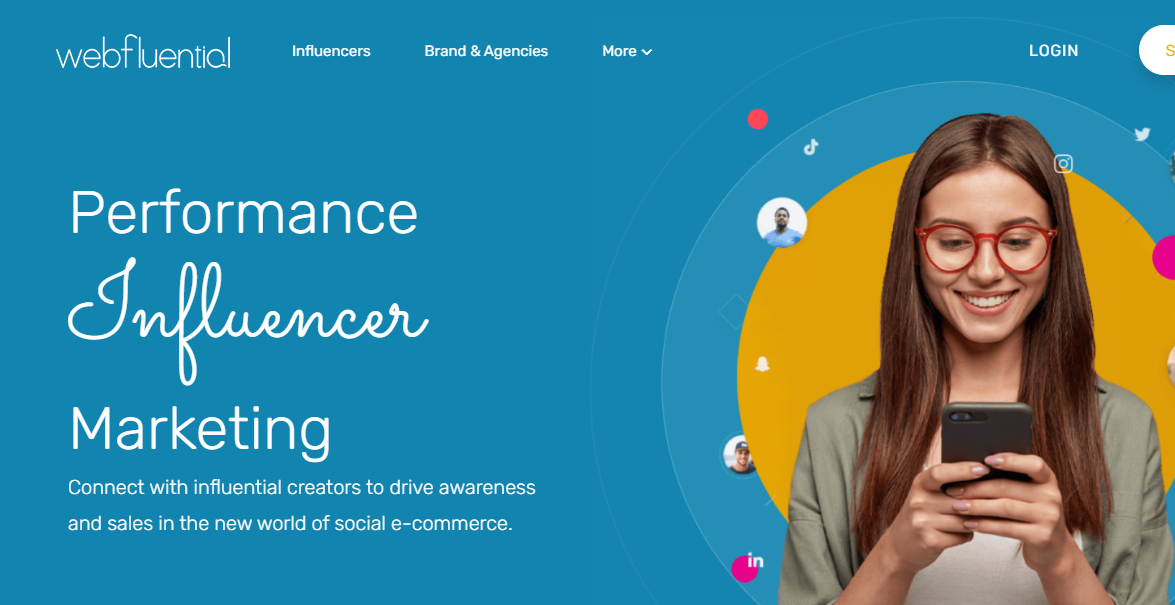
Key Features:
- Influencer Search and Discovery: Powerful tools for identifying influencers based on audience demographics, interests, and expertise.
- Content Marketplace: Access a marketplace where brands can discover and collaborate with influencers for content creation.
- Campaign Analytics: Real-time analytics and reporting to track the performance and impact of influencer campaigns.
- Audience Insights: Detailed insights into the audience demographics and engagement levels of influencers.
- Campaign Optimization: Tools for optimizing influencer campaigns based on performance data and audience feedback.
9. AspireIQ
AspireIQ is a robust influencer marketing platform designed to empower brands and agencies in their quest for authentic and impactful collaborations. This platform offers a comprehensive suite of tools that streamline the influencer marketing process from discovery to measurement.
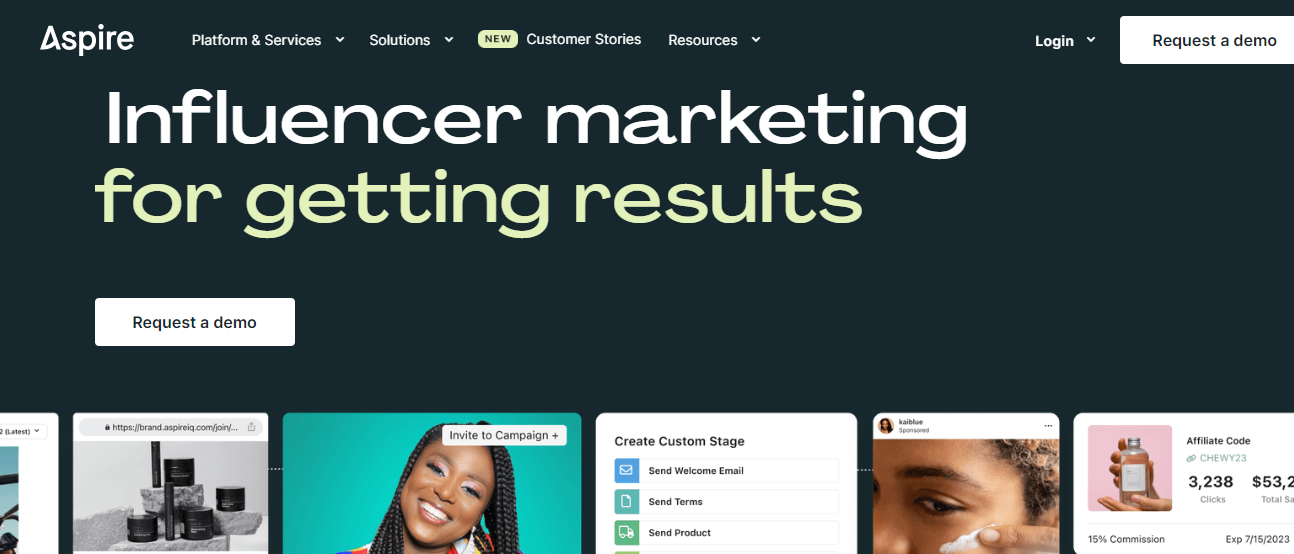
Key Features:
- Intelligent Influencer Discovery: AspireIQ employs advanced algorithms to identify influencers aligned with brand values and target audience, ensuring authentic partnerships.
- Campaign Management: The platform provides a centralized dashboard for managing campaigns, facilitating seamless collaboration between brands and influencers.
- Performance Analytics: Real-time analytics and insights allow users to measure the success of influencer campaigns, track key metrics, and make data-driven decisions.
- Content Rights Management: AspireIQ simplifies obtaining rights for user-generated content, enhancing the brand’s ability to repurpose and amplify impactful influencer-created content.
- Workflow Automation: The platform streamlines communication and collaboration, automating processes to increase efficiency and ensure a smooth experience for both brands and influencers.
10. Takumi
Takumi is a leading influencer marketing platform, committed to authenticity and meaningful connections between brands and influencers. With a focus on simplicity and effectiveness, Takumi empowers brands to reach their target audiences through engaging influencer collaborations.
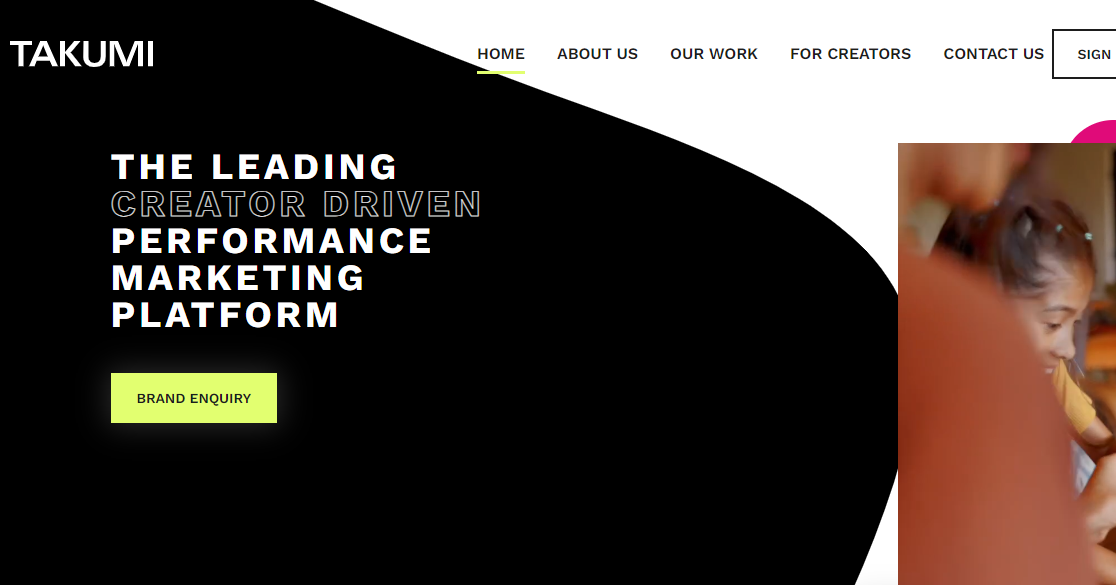
Key Features:
- Authentic Influencer Network: Takumi curates a network of genuine influencers, ensuring brand partnerships resonate with audiences and maintain authenticity.
- User-Friendly Interface: Known for its intuitive platform, Takumi offers a user-friendly experience, making it accessible for marketers with varying levels of expertise.
- Data-Driven Insights: Leveraging data analytics, Takumi provides in-depth insights into campaign performance, enabling brands to refine strategies for optimal results.
- Global Reach: With a diverse pool of influencers across the globe, Takumi enables brands to tap into different markets and demographics.
- Campaign Optimization: Takumi offers tools for effective campaign management, helping brands optimize influencer collaborations for maximum impact and reach.
Also Read: 45 Outstanding Lawyer WordPress Themes For Law Firms In 2024
Criteria for Choosing Influencer Marketing Platforms
Target Audience and Niche
- Who are you trying to reach? Define your ideal customer demographics, interests, and online behavior.
- Niche matters: Choose platforms where your target audience actively engages. Popular platforms might not always work if your niche is smaller or specialized.
- Platform demographics: Research influencer distribution on different platforms. Instagram skews younger, while LinkedIn targets professionals.
- Consider micro-influencers: They might have smaller followings but deeper connections with your niche audience.
Campaign Objectives and Goals
- What do you want to achieve? Increase brand awareness, drive website traffic, generate leads, boost sales, or build brand loyalty.
- Align platform strengths with goals: Instagram excels at building awareness, while YouTube is suitable for tutorials and in-depth reviews.
- Content format: Choose platforms that support your desired content type (videos, images, long-form articles).
- Trackable metrics: Ensure the platform provides analytics to measure your campaign’s success against your goals.
Budget and Pricing Structures
- How much can you invest? Set a realistic budget considering campaign length, influencer fees, and platform fees (if any).
- Pricing models: Platforms might charge monthly subscriptions, transaction fees, or per-campaign fees. Understand the structure and hidden costs.
- Influencer rates: Research average rates for your niche and influencer tier (macro, micro, etc.).
- Negotiate wisely: Don’t overpay, but offer fair compensation considering the influencer’s reach and engagement.
User-Friendly Interface and Features
- Platform ease of use: Both for you and the influencers you collaborate with. A complex interface can hinder campaign efficiency.
- Search and discovery tools: Effective tools to find influencers who fit your target audience and campaign goals.
- Campaign management features Streamlined communication, contract negotiation, content approval, and performance tracking tools.
- Reporting and analytics: Clear and comprehensive data on campaign performance to make informed decisions and optimize future campaigns.
Also Read: Udemy Competitors and Alternatives
How to Get Started with Influencer Marketing Platforms
Get Rolling with Influencer Marketing Platforms: A Step-by-Step Guide
Setting Up Your Account
- Platform Selection: Choose the platform that best fits your criteria (as outlined in previous sections). Most platforms offer free trials or demos, so take advantage of them to test the interface and features before committing.
- Brand Profile: Create a compelling profile showcasing your brand values, mission, and target audience. Include high-quality visuals and clear messaging about what you offer.
- Campaign Budget: Set a realistic budget for your first campaign, considering platform fees, influencer compensation, and potential content creation costs.
- Payment Setup: Link your preferred payment method for platform fees and influencer payments.
Also Read:10 Best Influencer Marketing Tools You Need In 2024
Creating Your First Campaign
- Campaign Goals: Clearly define your goals (brand awareness, leads, sales) and desired metrics for success (impressions, engagement, click-throughs).
- Target Audience: Refine your ideal audience demographics, interests, and online behavior based on platform insights and available influencer profiles.
- Influencer Discovery: Utilize the platform’s search and filter tools to find influencers who align with your target audience, niche, and campaign goals. Pay attention to their engagement rates, content style, and brand affinity.
- Reach Out and Connect: Contact your chosen influencers through the platform or directly (if allowed). Introduce yourself, your brand, and your campaign goals. Show genuine interest in their content and audience.
- Negotiate and Agree: Discuss campaign details, content requirements, compensation, and delivery timelines. Ensure both parties are clear on expectations before finalizing the agreement.
Leveraging Platform Features for Maximum Impact
- Campaign Management Tools: Utilize built-in features for communication, contract management, content approval, and performance tracking. Stay organized and keep everyone on the same page.
- Content Collaboration: Work with influencers to co-create content that resonates with their audience and aligns with your brand message. Offer creative freedom while ensuring brand consistency.
- Performance Tracking: Regularly monitor campaign metrics through the platform’s analytics dashboards. Adjust your strategy based on insights to optimize performance and maximize ROI.
- Reporting and Optimization: Generate comprehensive reports summarizing campaign results. Share key findings with stakeholders and adapt future campaigns based on learnings.
- Platform Resources: Don’t hesitate to use the platform’s educational resources, tutorials, and support teams to deepen your understanding of influencer marketing and platform functionalities.
Remember, successful influencer marketing is a continuous process. Stay engaged with your audience, analyze your results, and adapt your approach to achieve the best outcomes for your brand.
Also Read: Web Design Ideas to Promote Your Traveling Nurse Services
Tips for Maximizing Influencer Marketing Platforms
Building Strong Relationships with Influencers
- Go beyond transactions: Treat influencers as valuable partners, not just marketing tools. Invest in genuine connections and mutual respect.
- Personalized outreach: Customize your communication to each influencer, highlighting their strengths and why they’re a perfect fit for your campaign.
- Open communication: Encourage feedback and collaboration throughout the campaign. Be responsive to their questions and concerns.
- Mutual recognition: Give influencers proper credit for their work and celebrate their achievements alongside your own.
- Long-term partnerships: Consider building lasting relationships with successful influencers for ongoing campaigns and brand ambassadorship opportunities.
Crafting Authentic Campaigns
- Focus on storytelling: Weave your brand narrative into the influencer’s content for a seamless and engaging experience.
- Let influencers be themselves: Give them creative freedom to adapt your message to their style and audience. Avoid sounding scripted or inauthentic.
- Transparency is key: Disclose sponsored partnerships clearly and authentically. Build trust with your audience by being upfront about collaborations.
- Focus on value, not just promotion: Create content that educates, entertains, or inspires your audience, not just pushes products.
- Embrace user-generated content: Encourage influencers and their audience to share their own experiences with your brand for more organic reach and engagement.
Also Read: Best WooCommerce Hosting 2024
Monitoring and Analyzing Performance Metrics
- Track relevant metrics: Go beyond vanity metrics like follower count and focus on actionable data like engagement rate, click-through rate, and conversions.
- Regularly evaluate performance: Set milestones and monitor progress throughout the campaign. Identify what’s working and adjust your strategy as needed.
- A/B testing: Experiment with different influencer pairings, content formats, and call-to-actions to optimize your results.
- Benchmark against industry standards: Compare your performance to similar campaigns and platforms to identify areas for improvement.
- Utilize platform analytics tools: Most platforms offer comprehensive dashboards and reporting tools. Leverage them to gain deeper insights and make data-driven decisions.
Conclusion
Influencer marketing platforms are vital in the modern digital marketing landscape. They facilitate authentic collaborations, emphasizing relationship-building with influencers. Crafting genuine campaigns, aligned with brand values, resonates with diverse audiences. The real-time monitoring and analysis of performance metrics drive data-driven strategies, ensuring adaptability and long-term success. As dynamic tools, these platforms bridge the gap between brands and influencers, marking a key intersection of technology, authenticity, and strategic marketing practices.
Interesting Reads:
Best Practices For Social Media Success in 2024




